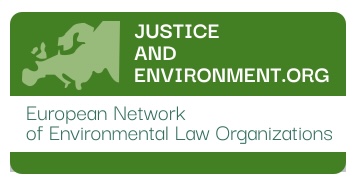Nature conservation, public participation and access to justice are likely to be undermined, therefore J&E member ÖKOBÜRO and Bankwatch CEE are challenging it at the Court of Justice of the European Union.
More details:
Earlier this year, Bankwatch CEE and Justice & Environment member ÖKOBÜRO filed a legal challenge against Council Regulation 2022/2577, which aims to expedite procedures for renewable energy projects throughout the EU. This regulation allows EU member states to waive the requirement for an environmental impact assessment (EIA) as well as certain water, habitat, and species protection provisions under other EU directives (namely the Water Framework Directive, the Birds Directive and the Habitats Directive). This can occur in areas designated through a strategic environmental assessment. While it is important to accelerate the energy transition, it should not happen at the expense of preserving nature and biodiversity.
On June 13, 2023, the EU Council responded to the appeal and dismissed the grounds for complaint. Together with Justice & Environment, ÖKOBÜRO and Bankwatch CEE are looking into an appeal to the CJEU, as the main arguments for the legal challenge were not refuted in a meaningful way by the Council. The complaint was based on five main points, arguing the violation of international and EU law:
- The Treaty on the Functioning of the European Union (TFEU) does not cover the contested act. According to Articles 191 and 194 of the TFEU, EU environmental law should not undermine existing environmental protection, which would be the consequence of the contested act. Furthermore, the chosen procedure violates Article 122 of the TFEU, rendering the contested act unlawful. Additionally, Articles 296 and 191 of the TFEU obligate the EU to act in accordance with the principle of proportionality, which has not been observed in this case.
- The Aarhus Convention is violated since the regulation in question deprives the affected public of the opportunity to participate in the procedure due to the removal of the EIA process and does not provide access to courts to challenge the outcome of the procedure.
- The Alpine Convention is violated as the regulation in question undermines both the obligation to conduct an EIA and the absolute protection of peatland areas.
- The EIA Directive is violated as projects are unlawfully exempted from the obligation to undergo an EIA.
- The Habitats Directive, Birds Directive, and Water Framework Directive are violated as the contested act suggests a presumption of overriding public interest and undermines a thorough individual assessment of projects required under the mentioned directives. According to existing legislation, it is already possible to determine that renewable energy projects are of overriding interest. This new clause is likely to cause further confusion and undermine public consultations.
The appeal to the CJEU would challenge the Council’s response rather than the regulation itself, but would likely have a significant impact on the discussion of fast track systems which are designed to undermine nature conservation and public participation, as well as access to justice on an EU level.


